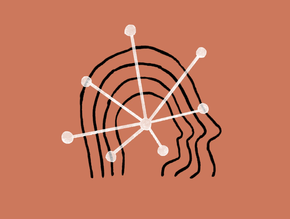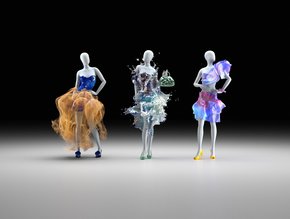Accenture: How Work can Change in the Age of Generative AI

Generative AI (Gen AI) represents a monumental shift in work dynamics, promising economic growth comparable to the agricultural and industrial revolutions.
The evolution of AI can be marked by three phases of significant advancements. The Diagnostic Era was largely defined by the introduction of machine learning, the Predictive Era gave us the ability to make increasingly accurate forecasts about everything from operations to customer behaviour. Finally, late 2022 saw the beginnings of the Generative Era.
Now machines are generating creative content and offering personalised suggestions, individuals across all sectors have the opportunity to redesign workflows - Accenture’s research highlights its potential to accelerate economic value, spur business growth, and enhance job satisfaction through more human-centric processes.
Concerns of job displacement persist
Through comparative analysis, it's projected that over US$10.3tn in additional economic value could be generated by 2038 if Gen AI is implemented at scale across various industries and value chains.
This potential is underscored by the optimism of C-level executives (CxOs), the majority of whom foresee Gen AI driving an increase in their company's market share. Notably, 17% of CxOs anticipate a substantial boost of 10% or more in their market share due to the adoption of Gen AI.
This optimism reflects the confidence in the transformative power of Gen AI to enhance business competitiveness and drive growth.
According to the report, 95% of workers see value in working with gen AI, but their top concern is that they don’t trust organisations to ensure positive outcomes for everyone. The report theories that misaligned perceptions between leaders and workers will also erode trust and hinder uptake.
When it comes to job security, 58% of workers are worried, yet less than one-third of CXOs feel job displacement is a concern for people. There’s another disconnect when it comes to well-being, with 60% of workers concerned that gen AI may increase stress and burnout but only 37% of leaders see this as an issue.
Accenture’s data modelling also suggests that 44% of working hours in the US are in scope for automation or augmentation. This percentage is even higher in countries with greater numbers of knowledge- and language-task-based workers relative to the full working population. Taking the UK as an example, 47% of all working hours could be impacted. It’s also important to note that people with lower levels of digital skills, less career experience and less formal education could be more negatively impacted, which only highlights the risk of exacerbating the digital divide
Gaining trust: “Net better off”
Accenture’s research has shown that helping people to become “Net Better Off” can improve a person’s potential at work by 64%.
“Net better off”, a term coined by Accenture, was developed to encourage ethical business practices in increasingly technocentric work environments. The phrase suggests that companies must meet six fundamental human needs through work, which will help unlock staff’s “full potential”. The six dimensions of “Net better off” are: Emotional & Mental, Relational, Physical, Financial, Purposeful and Employable.
Their research suggested that should “net better off” be deployed, companies and staff could ultimately deliver 5% greater revenue growth.
“Net better off” represents a potential strategy for bridging the trust divide and instilling confidence among employees regarding artificial intelligence (AI). Specifically, individuals who experience a significant improvement in their overall well-being due to AI adoption are more likely to express strong agreement with its use, particularly concerning its applicability to their job responsibilities.
For example, employees who feel substantially Net Better Off exhibit a 19 percentage point increase in expressing strong agreement with AI technology, indicating their comfort with integrating it into their work processes.
This suggests that prioritising employees' positive experiences with AI can contribute to building trust and fostering acceptance of this technology in the workplace.
******
Make sure you check out the latest edition of AI Magazine and also sign up to our global conference series - Tech & AI LIVE 2024
******
AI Magazine is a BizClik brand






